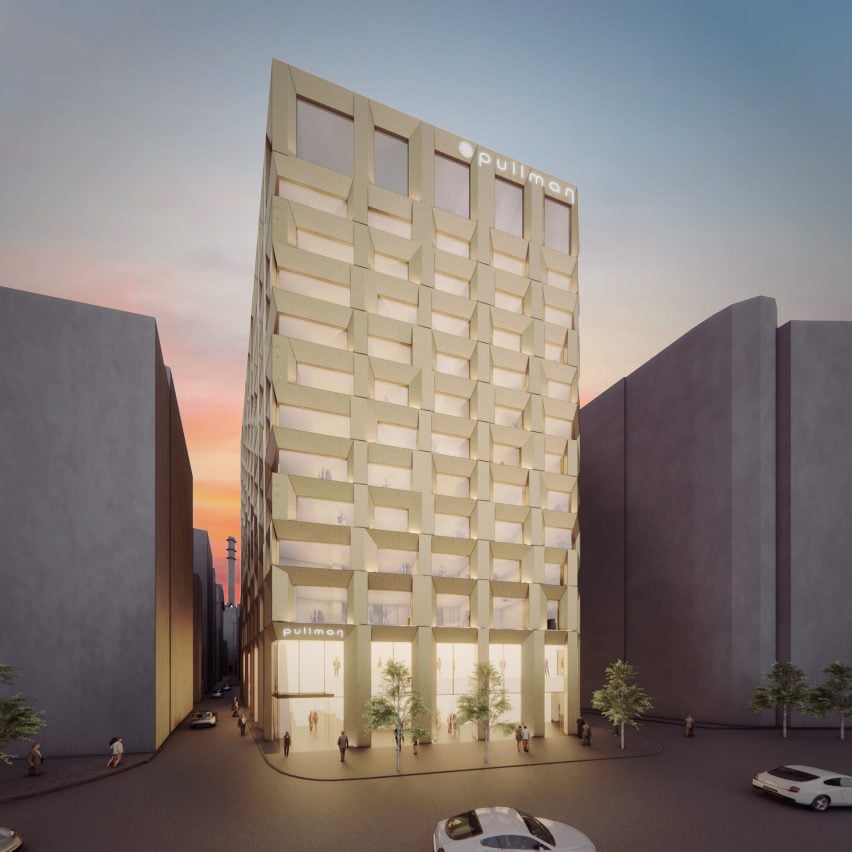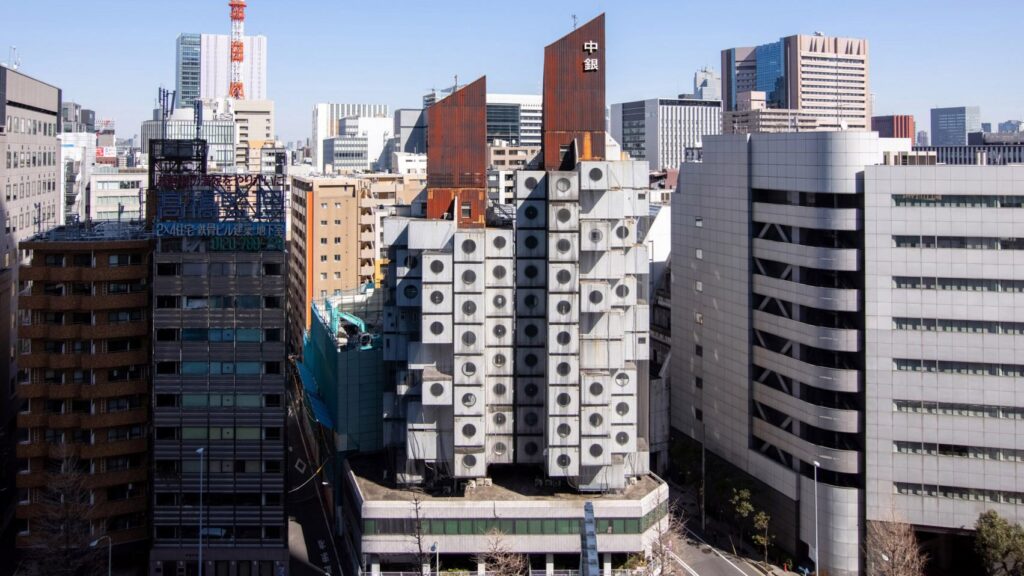[ad_1]
The site of the metabolist Nakagin Capsule Tower, which was disassembled in Tokyo’s Ginza district in 2022, is set to be taken over by a luxury hotel led by hospitality brand Accor.
Accor has revealed it will open the Pullman Tokyo Ginza hotel on the site of the iconic Japanese housing block in late 2027.
It follows the controversial dismantling of the Nakagin Capsule Tower due to the dilapidation of its structure, which was completed in 1972 to a design by architect Kisho Kurokawa.
Site in “one of Asia’s most sought-after” destinations
Nakagin Capsule Tower was composed of two interconnected concrete towers, onto which 140 prefabricated steel capsules were bolted. These pods contained compact homes.
Kurokawa’s ambition was for these tiny homes to be swapped out and replaced every 25 years but a lack of funding meant this was never realised, leading to their deterioration.
Video footage shot by Dezeen in April 2022 captured the dismantling of the structure finally taking place, following years of protests, fundraisers and petitions aimed at saving it.
Accor has said it obtained its site for the Pullman Tokyo Ginza because it is “one of Asia’s most sought-after shopping and lifestyle districts”. Its architect has not yet been disclosed.

“Pullman Tokyo Ginza will serve as a prime destination for both domestic and international guests,” said Accord.
Few details about the hotel have been revealed, but in the render that has been published, it can be seen with a boxy form with deep-set windows and a glazed double-height lobby.
It will contain 145 bedrooms alongside amenities including a restaurant, bar and gym.
“This hotel is designed to cater to the needs of the modern leisure traveller, offering flexible and innovative meeting, events, and business spaces that seamlessly blend productive workspaces with vibrant social areas,” said Accor.
“I guess it would be difficult to include a capsule”
In response to the news, a spokesperson for the Nakagin Capsule Tower Building Preservation and Regeneration Project said it hopes the new building will pay homage to Kurokawa’s structure.
“I would be happy if the hotel had photos or objects of the Nakagin Capsule Tower in the interior,” they wrote on X. “I guess it would be difficult to include a capsule.”
While the tower has been demolished, many of the individual capsules have been preserved. Among them is the pod numbered A606, which is being converted into a “mobile capsule”.
The group leading this, named Nakagin Capsule Tower A606 Project, told Dezeen that the ambition is to honour “Kurokawa’s concept of ‘architecture in motion'” and adaptability.
Adaptability was a key focus of metabolism, an architecture movement founded in Japan between the late 1950s and early 1960s. Nakagin Capsule Tower was one of few the remaining buildings from the era.
Each of the Nakagin Capsule Tower capsules was animated by a round window and measures 2.5 metres by four metres and contained built-in living spaces and furniture.
Kurokawa designed them to attract single businessmen looking for a compact home in a central and convenient location.
Though the original tower has been demolished, it could be replicated in both real space and the metaverse, as its original architect Kisho Kurokawa’s studio is auctioning the rights to rebuild it.
Japanese digital consultancy Gluon is also attempting to recreate the Nakagin Capsule Tower in digital space, using data collected from 20,000 photographs to create an augmented-reality model.
The main photo is courtesy of the Nakagin Capsule Tower A606 Project.
[ad_2]
Source link

